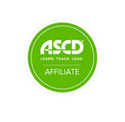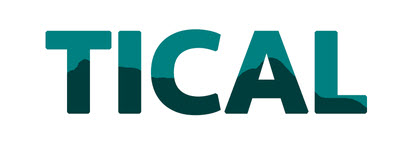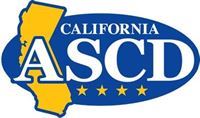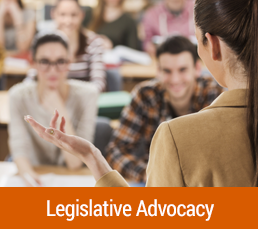EDSOURCE...
The California education bills that made it to Newsom’s desk, and those that didn’t
Published
September 14, 2025
-
Monday, September 15, 2025 — 2:09 pm
-
Monday, September 15, 2025 — 9:25 am
-
Monday, September 15, 2025 — 9:06 am

September 11, 2025 - An audit found the charter received millions in funding for which it was not eligible, assigned teachers to classes they were not credentialed to teach, and avoided standardized testing, in addition to spending on items like a trip to Paris and leasing a ballpark.
Subscribe and view more
California State Capitol in Sacramento.
Credit: Rahul Lal/Sipa USA/Sipa via AP Images
Lawmakers waited until the final hours of the final day of the legislative session to resolve two of the most contentious TK-12 education issues: confronting rising antisemitism in schools and clamping down on charter school fraud.
Facing a stalemate on the former issue and a standoff between charter schools and unions on the latter, legislators settled for a compromise. They created an Antisemitism Prevention Coordinator in an independent Office of Civil Rights. And on Saturday, one day after the session was to end, they approved the more tempered version of charter reform opposed by the California Teachers Association.
These are the big education bills headed to Gov. Gavin Newsom’s desk for his signature and those that failed to reach his desk. Among them was the passage of the nation’s first ban, within a decade, on ultra-processed food in school meals.
Authors: Assemblymembers Rick Chavez Zbur, D-Hollywood, Dawn Addis, D-Morro Bay
What will it do: The bill aims to reduce antisemitism in schools by establishing a new Office of Civil Rights and an Antisemitism Prevention Coordinator, who can help track and report antisemitism in schools, as well as train and advise Local Educational Agencies. It also requires any adopted curriculum to be “factually accurate and align with the adopted curriculum.”
Status: The bill is headed to the governor’s desk.
— Mallika Seshadri
Authors: Assemblymember Al Muratsuchi, D-Torrance (AB 84); Sen. Angelique Ashby, D-Sacramento (SB 414)
What they would do: Both AB 84 and SB 414 ended up containing many of the same elements for increasing oversight of charter schools, including expanding auditing requirements; improving data collection on enrollment, student-teacher ratios, and achievement in nonclassroom-based charters; and banning spending on entertainment unrelated to instruction, such as theme parks. SB 414 also creates an Inspector General’s Office to investigate allegations of fraud in all public schools. AB 84, pushed by labor unions, would impose more stringent charter approval and renewal requirements, which charter schools oppose.
Status: SB 414 passed after arguments on the floor continued late Friday night into Saturday. AB 84, lacking enough support, wasn’t put to a vote and can be brought up again next year. Read EdSource’s full report here.
— Kathryn Baron and Diana Lambert
Authors: Assemblymembers Al Muratsuchi, D-Torrance, Liz Ortega, D-Hayward, Celeste Rodriguez, D-Arleta; Sen. Lena Gonzalez, D-Long Beach
What it will do: The bill would prohibit schools from allowing immigration enforcement officers to enter a school campus or question a student unless they have a judicial warrant or court order. It would also prohibit schools from sharing information about a student, family or employee with immigration officials, unless the officials present a judicial warrant or court order.
Status: The bill is headed to the governor’s desk.
— Zaidee Stavely
Author: Sen. Sasha Renée Pérez, D-Pasadena
What it will do: The bill would require school districts, California State University, each California community college district, and each Cal Grant qualifying institution of higher education, as well as request the University of California, to issue a notification to all students, faculty and other campus community members when the presence of federal immigration enforcement is confirmed on campus. These notifications must include the date, time and location of enforcement on campus, as well as a link to additional resources for students and campus community members.
Status: The bill is headed to the governor’s desk.
— Vani Sanganeria
Author: Sen. Sasha Renée Pérez, D-Pasadena
What it would do: The bill would revise the California Dream Act Application, clarifying that the form is open to any student who is eligible for state aid, regardless of their eligibility for federal financial aid.
Status: The bill is not going to the governor’s desk.
— Amy DiPierro
Authors: Assemblymembers Al Muratsuchi, D-Torrance, Dawn Addis, D-Morro Bay
What it would do: The bill would have increased California teacher and classified school employee salaries by 50% over the next decade. It would also have increased statewide school funding incrementally through the 2036-37 school year, allowing school districts to increase staff pay.
Status: The bill is not going to the governor’s desk.
— Diana Lambert
Author: Assemblymember Celeste Rodriguez, D-Arleta
What it will do: The bill would expand the number of relatives who can sign a “caregiver’s authorization affidavit” and be able to enroll a child in school and make school-related medical decisions on behalf of a child to include all adults related to a child by blood or adoption, within five generations, or “degrees of kinship.” This would include great- or great-great aunts or uncles, and spouses of these relatives, in addition to stepparents, stepsiblings and other relatives. It would also authorize a court to appoint a person nominated by a parent to have joint custody of a child if the parent is unavailable due to circumstances such as immigration detention or deportation, and make it easier for the parent to terminate those rights when they are available again.
Status: The bill is headed to the governor’s desk.
— Zaidee Stavely
Author: Sen. Laura Richardson, D-Torrance
What it will do: The bill requires that the Instructional Quality Commission consider including the historical contributions of African Americans in early California history when it revises the curriculum framework in history-social science or adopts new instructional materials.
Status: The bill was signed by the governor.
— Diana Lambert
Author: Sen. John Laird, D-Monterey
What it would do: It would require that lawsuits seeking damages suffered as a result of childhood sexual assault by an employee of public agencies, including schools, that occurred before Jan. 1, 2024, be initiated before the plaintiff turns 40, or, after having turned 18, within five years of the date the plaintiff discovers or reasonably should have discovered that psychological injury or illness from the sexual assault, whichever period expires later. Existing law sets no limit on when such a suit can be filed.
Status: The bill is not going to the governor’s desk.
— Thomas Peele
Author: Sen. Christopher Cabaldon, D-Napa
What it will do: The bill aims to make it easier for qualified California high school students to get admitted to California State University. Eligible high school students — those who have taken the required courses and maintained an appropriate grade point average — will receive mailers directly admitting them to participating CSU campuses.
Status: The bill is headed to the governor’s desk.
— Amy DiPierro
Author: Sen. Christopher Cabaldon, D-Napa
What it would do: The bill clears the way for the governor to sign onto an existing interstate agreement that sets standards for online college courses and degrees, but only under certain conditions. For example, the state would have to confirm that joining the agreement would not block California from enforcing its own consumer protection laws.
Status: The bill is not going to the governor’s desk.
— Amy DiPierro
Authors: Assemblymembers Avelino Valencia, D-Anaheim, Robert Garcia, D-Rancho Cucamonga, Anamarie Ávila Farías, D-Concord
What it will do: The legislation would help fill vacant teaching positions by doubling the number of days a substitute can teach in a single classroom from 30 to 60 in general education, and from 20 to 60 in special education. The legislation would go into effect on Jan. 1 and require school districts to report substitute usage in 2026-27.
Status: The bill is headed to the governor’s desk.
— Diana Lambert
Author: Assemblymember Jesse Gabriel, D-Encino
What it will do: The bill would require the Office of Environmental Health Hazard Assessment to adopt regulations for ultra-processed foods (UPFs), defined as any food or beverage high in saturated fats, sodium, or specific added sugars or sweeteners. It would require schools to begin phasing out harmful UPFs by Jan. 1, 2028. Starting July 1, 2035, the bill would prohibit a school district, county superintendent of schools, or charter school from offering a “nutritionally adequate” breakfast or lunch that includes harmful ultra-processed foods or selling food or beverages with UPFs, except as part of a school fundraiser.
Status: The bill is headed to the governor’s desk.
— Vani Sanganeria
Author: Assemblymember Jasmeet Bains, D-Bakersfield
What it will do: School districts, county offices of education and charter schools can currently request average daily attendance (ADA) credit to make up for decreases in attendance reaching 10% of the student population that occur due to a specified list of reasons. This bill would add immigration enforcement actions to that list, which includes fires, floods, epidemics, earthquakes, and more, by June 30, 2029. When such a request for ADA credit is made, students must also be offered independent study.
Status: The bill is headed to the governor’s desk.
— Betty Márquez Rosales

Authors: Assembly Speaker Robert Rivas, D-Salinas, and Assemblymembers Al Muratsuchi, D-Torrance, Blanca Rubio, D-Baldwin Park
What it will do: It will provide missing links to California’s comprehensive early literacy reforms, which are effective in other states. The bill would provide teachers with evidence-based resources and training in reading instruction, including phonics in kindergarten and first grade. The State Board of Education would select a new list of instructional materials tied to what’s commonly called the science of reading. Districts must select from the list or justify their choices. The state would update reading instruction in administrators’ credentialing programs.
Status: It passed the Senate unanimously, 38-0, and is headed to Gov. Gavin Newsom.
— John Fensterwald
EDSOURCE











